Managing Mental Health When Working from Home
Remote work has become a defining feature of modern life. While the flexibility to work from home offers new opportunities for productivity and work-life balance, it also presents unique challenges to our mental well-being. At Vital Psych MD, we understand the importance of addressing these challenges with evidence-based strategies that support your mental health. This article explores practical approaches to maintaining emotional wellness, establishing healthy boundaries, and leveraging virtual resources while working from home.
The New Normal: Remote Work and Mental Health
The transition to remote work has accelerated rapidly in recent years. Nearly 28% of employed people in the United States worked remotely at least part of the time. This shift has brought benefits such as reduced commuting stress and increased autonomy, but it also blurs the line between personal and professional life. Without clear boundaries, it's easy to feel "always on," leading to stress, anxiety, and burnout.
Establishing Work-Life Boundaries
One of the most significant challenges in remote work is creating a clear division between work and home life. The physical absence of an office can make it tempting to check emails late at night or extend your work hours into the evening. Over time, this lack of separation can erode your sense of personal time and contribute to chronic stress.
To protect your mental health, it is crucial to set boundaries. Start by designating specific work hours and communicating them to your colleagues. Let your team know when you are available and when you are offline. This not only sets expectations but also helps reinforce your own schedule. Turning off notifications after work hours and using features like "Do Not Disturb" can reinforce this boundary.
At Vital Psych MD, we encourage our clients to engage in daily rituals that signify the start and end of the workday. Whether it’s a morning walk, a cup of coffee, or an evening meditation, these routines can help your mind transition between work and relaxation.
Creating a Dedicated Workspace
A dedicated workspace is a powerful tool for maintaining focus and supporting mental health. When you work from your kitchen table or couch, it can be difficult to mentally "switch off" after work is done. By establishing a specific area for work—even if it’s just a corner of your living room—you create a physical cue for your brain that it's time to focus.
Your workspace does not need to be elaborate. A comfortable chair, a clean desk, and good lighting can make a significant difference. Minimize distractions by keeping your workspace tidy and free from non-work-related items. If possible, position your desk near a window; natural light has been shown to improve mood and productivity.
Consider ergonomics as well. Poor posture from makeshift workstations can contribute to physical discomfort, which in turn affects your mental state. Investing in an adjustable chair or a standing desk can help prevent fatigue and maintain your well-being.
Managing Social Isolation
One of the less visible challenges of remote work is social isolation. When you’re not in a shared office, opportunities for casual conversation and connection diminish. Loneliness can have a profound effect on mental health, increasing the risk of depression and anxiety.
To combat isolation, prioritize regular social interactions. Schedule virtual coffee breaks or catch-up calls with coworkers. Participate in online communities related to your field or interests. Even brief interactions can help maintain a sense of belonging and support.
Leveraging Virtual Tools for Mental Health Support
The digital age offers an abundance of virtual tools designed to support mental health. From meditation apps to online therapy, these resources can help you manage stress, build resilience, and stay connected.
Mindfulness and meditation apps like Headspace and Calm provide guided exercises to reduce anxiety and improve focus. Many employers also offer Employee Assistance Programs (EAPs) that include access to counseling and wellness resources. If you’re unsure what support is available, check with your HR department or explore reputable online directories for mental health professionals.
Teletherapy has become increasingly accessible and effective. Virtual therapy is as effective as in-person sessions for many mental health concerns. At Vital Psych MD, we are committed to providing compassionate, evidence-based care through secure virtual visits, making mental health support more accessible than ever.
Stress Management Strategies for the Home Office
Managing stress while working from home requires proactive strategies. Take regular breaks throughout the day to stretch, breathe, or step outside for fresh air. The Pomodoro Technique—working in short, focused intervals followed by brief breaks—can enhance concentration and prevent burnout.
Physical activity is another crucial component of mental wellness. Regular exercise, even in the form of a brisk walk, has been shown to reduce symptoms of anxiety and depression. Incorporate movement into your daily routine, whether through home workouts, yoga, or outdoor activities.
Prioritize sleep and nutrition as well. Adequate rest and a balanced diet support cognitive function and emotional regulation. If you struggle with sleep, establishing a consistent bedtime routine and limiting screen time before bed can help improve sleep quality.
When to Seek Professional Support
It’s normal to face periods of stress or low mood, especially during times of change. However, if you notice persistent feelings of sadness, anxiety, or hopelessness, it may be time to seek professional support. Warning signs can include changes in appetite or sleep, difficulty concentrating, or withdrawal from social connections.
At Vital Psych MD, our team of mental health professionals is here to help you navigate the challenges of remote work. We offer evidence-based therapies and medication management tailored to your unique needs. Early intervention can make a significant difference in your well-being and long-term productivity.
Building a Sustainable Remote Work Routine
Remote work is likely to remain a significant part of the modern workplace. By establishing boundaries, creating a dedicated workspace, maintaining social connections, and utilizing virtual mental health resources, you can proactively manage your mental health and thrive in your home office.
Remember, your mental health is just as important as your professional achievements. For more resources and support, visit our blog or reach out to our team. At Vital Psych MD, we are dedicated to empowering you to live and work well—wherever you are.











